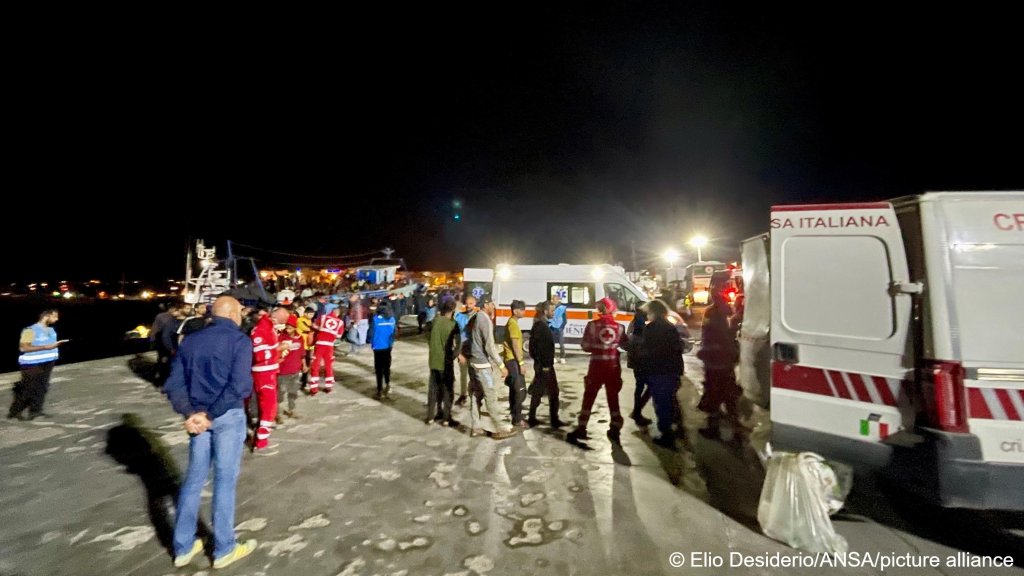The 2024 Migrantes Report on asylum rights was presented at the Pontifical Gregorian University in Rome on December 11. The annual report, drafted by the Catholic Migrantes Foundation, included significant figures and analyses.
The 2024 Report on Asylum rights from the Migrantes Foundation, entitled 'Journeying populations --without the right to asylum' has voiced opposition to the Common European Asylum System (CEAS), which is part of the new EU Pact on Migration and Asylum.
"Despite the solemn declaration that the right to asylum cannot be violated," explained the report, "recent reforms limit access to such a right. In particular, the introduction of accelerated procedures and restrictions for asylum applicants at the EU's external borders increases detention cases in transit areas and reduces the effectiveness of legal proceedings against pushbacks."
Moreover, the dossier continued, "the juridically fictitious concept of 'non entry' is introduced, which considers some asylum seekers as not present on the territory, enabling the adoption of restrictive measures and immediate pushbacks."
Read AlsoEU to boost security, restrict asylum right at Russia, Belarus borders
'Highest number of refugees in Europe hail from Syria'
The new European Pact on Migration and Asylum, explained the Migrantes Foundation, represents a "downward compromise that paves the way for a further weakening of the rights of asylum seekers and refugees."
"One of the few positive steps forward,"stated the report, "instead concerns 'humanitarian resettlement', which however remains an option for member states."
"The dream of a supportive and welcoming Europe," the report continued, "is a concrete project that can be implemented and requires the commitment of Christians and of all citizens, starting with their everyday lives, in order to build a 'political charity' able to generate long-term social processes."
In 2023, note the report's authors, Syrians accounted for the greatest number of people seeking refuge within the European Union.
In Italy, they are the second nationality of origin of those arriving, after Bangladeshis, according to Italian government data. In 2023, Syrians accounted for 183,000 asylum applications.
The report authors, following analysis of Italy's migration policy and praxis, judged the hosting system as "fragmented, sketchy and unfair." Highlighting areas where they saw these problems, the document included proposals in a number of areas, including the legal, social and ethical sectors, where changes could be made.
The report suggested that taking positive examples of projects that are working and encouraging intergration around Italy, could help form a new "theology of asylum" to help encourage better praxis across the board.
Read AlsoNew EU migration policies expected to get even tougher in 2025
'Less than 414,000 refugees live in Italy'
According to the report, as of January 1, 2024, less than 414,000 non-EU citizens with a residence permit for asylum and protection lived in Italy, about 0.7 percent of the entire population.

The hosting system currently houses 138,000 people including asylum seekers, refugees and migrants. In the first eight months of 2024, a reported 109,000 people applied for some form of international protection, up 32 percent compared to the same period last year.
In Italy, "in 2024, after four years of growth, the number of people who reached the country from the Mediterranean plummeted: between January and mid-October, 54,000 people landed, down 61 percent over the same period in 2023," noted the report.
The dossier explained that the great majority of arrivals hailed from Bangladesh, more than 13,000 as of December 13, and Syria, more than 12,000 on the same date. Citizens from Tunisia ranked third and stood at more than 7,600 on December 13.
In 2023, new arrivals were mainly Guinean, Tunisian and Ivorian citizens. Between January 1 and July 31, 2024. In that year, ships run by civil society organizations intervened in migrant-rescue operations that led to the rescue of over 6,200 people -- less than one-fifth of all refugees and migrants who landed in Italy at the time (33,500) either autonomously or through SAR operations.
Overall in 2023, the people who reached Italy after being rescued at sea by a vessel operated by an NGO were 8,900, six percent of the total number of people who landed in the country, noted the report. In 2022, rescue operations carried out by NGOs accounted for 11 percent of the total. In 2021 for 15 percent, in 2020 for ten percent and in 2019 for 17 percent.
